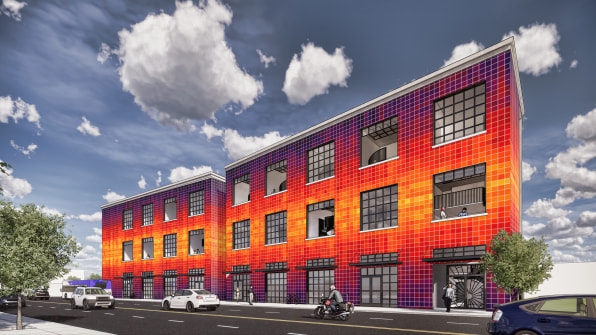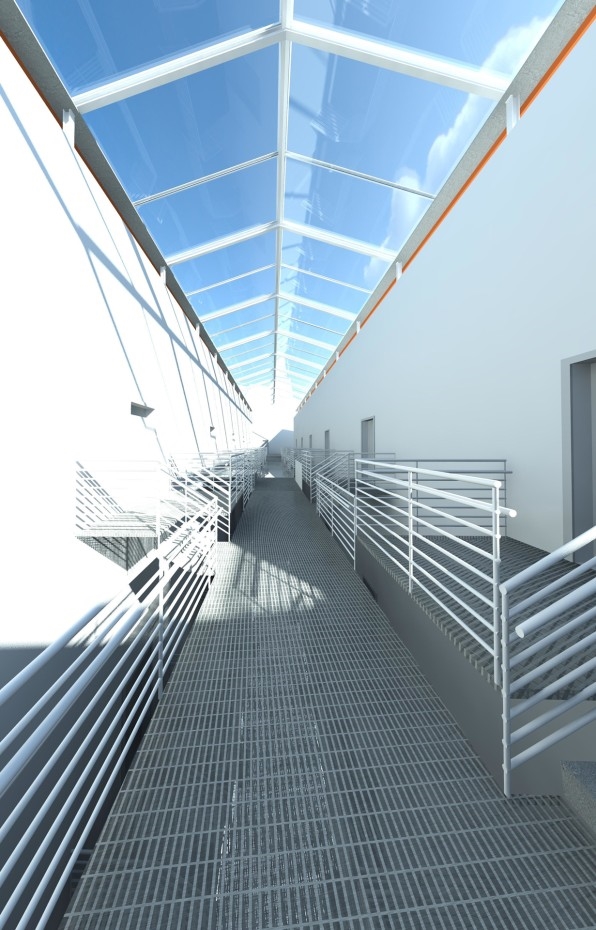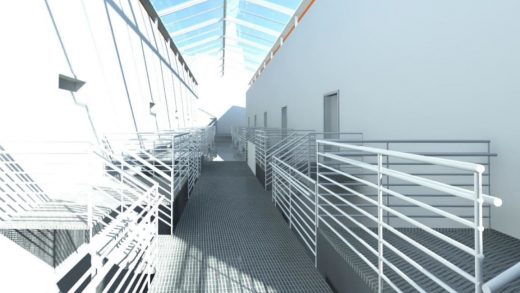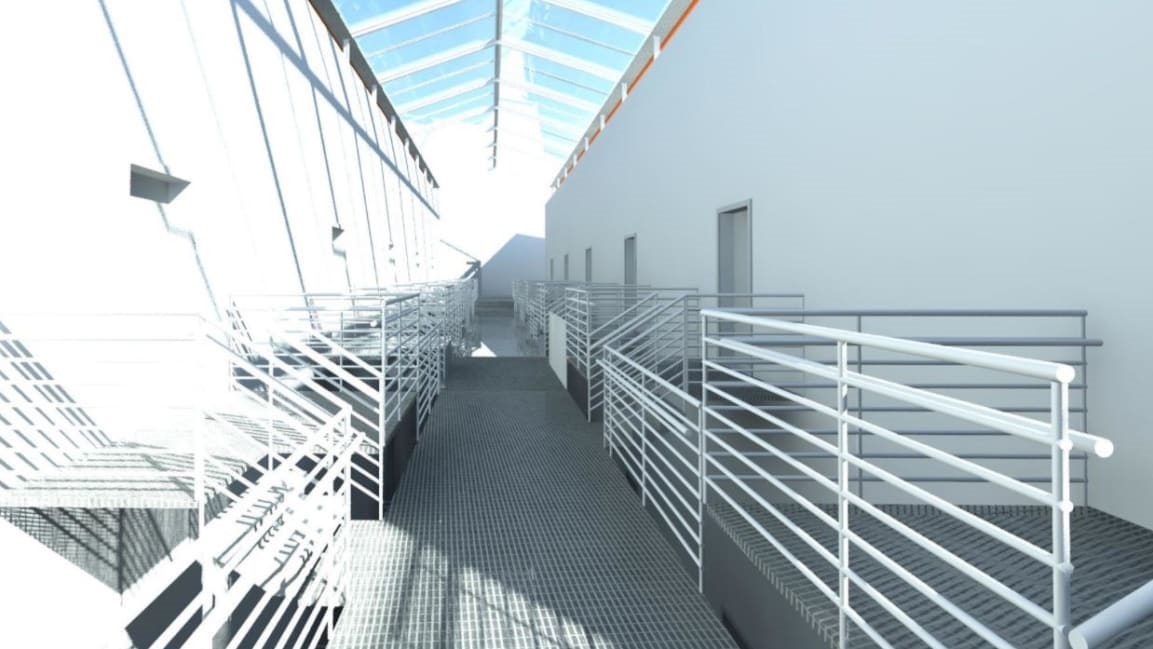The owners of this apartment building have a radical approach to affordability: Make less money on rent
On a lot in Portland, Oregon, which once housed a car repair shop and a parking lot, a new apartment building will soon be built with a new approach to affordability. Instead of using federal subsidies to make some of the apartments affordable, the building’s owners have agreed to simply make less money than usual—and put the extra cash back into the project to push down the cost of rent.
“All you have to do to make affordable housing is charge less rent,” says Kevin Cavenaugh, founder of Guerrilla Development, the real estate company behind the 58,000-square-foot building, called Atomic Orchard Experiment. “It’s really not complicated. If you build something as aggressively and austerely and beautifully as you can—you can’t forget the beautiful part—but if you build it for less, your mortgage is less. And just because you could rent it for X doesn’t mean you have to rent it for X.”

By avoiding the subsidies that developers typically use for affordable housing, Cavenaugh says that he can avoid the bureaucratic hurdles that slow projects down, which also increase expenses. By working with investors that want to support social impact, the project can provide affordable units without outside subsidies. Investors typically get an 8% dividend on buildings like this; in this case, they agreed to 4%. They’ll still make money, but the roughly $200,000 will go back into the building, internally subsidizing 12 of the 49 units, and then converting more units to affordability each year as more money comes in (though there is no guarantee the building won’t raise rents in the future—or be sold to someone who feels differently). “Capitalism doesn’t have to be complicated,” he says. “It would just be lovely if it was a little less greedy, right?”
Each of the one-bedroom apartments has the same simple design—a small loft with a spiral staircase that leads up to a mezzanine with a bedroom and bathroom. A massive, glass garage door on the front of each unit provides light and can roll up for fresh air. The building doesn’t have any parking spots, since the city of Portland, unlike many cities, doesn’t require it (this also helps reduce cost). The market-rate apartments may rent for around $1,700 a month, increasing each year with the market. The affordable apartments may rent for $950 or $1,000 a month.
Cavenaugh wanted to find new solutions for affordable housing after meeting an unhoused man who slept in front of his office, and thinking about Portland’s challenge with homelessness, which continues to grow. “Everyone wants to do something,” he says. “And I’m a real estate developer, with a degree in architecture. If I can’t fix this, or try to, shame on me if I don’t even try.” In 2020, his firm crowdfunded and built a single-room occupancy (SRO) building—a type of building that used to be much more common in cities—and partnered with a homelessness nonprofit to help new formerly homeless residents move in. Another similar building is under construction now.

As housing in Portland keeps getting more expensive, many others are struggling to find places to live. With the newest project, the company plans to target residents with low-income jobs who are doing critical work in the city. “I reached out to my lawyer and I said, ‘Hey, am I allowed to discriminate by profession? Can I only rent to social workers who are on the frontlines of the homelessness crisis?” That type of discrimination is legal, he found out. The approach will be one way to help some people afford to stay in a city that they might otherwise have to leave.
The project, which will break ground next February, could be replicable elsewhere. “Developers use the phrase ‘it doesn’t pencil,’” Cavenaugh says, meaning that they claim that affordable housing simply isn’t financially feasible to build in expensive cities like San Francisco. “That’s not a true statement,” he says. “What they should be saying is, affordable housing in the Bay Area doesn’t pencil enough for them. They could do it. It’s in the black, they can make money. They could just make more money doing other stuff.”
(31)



